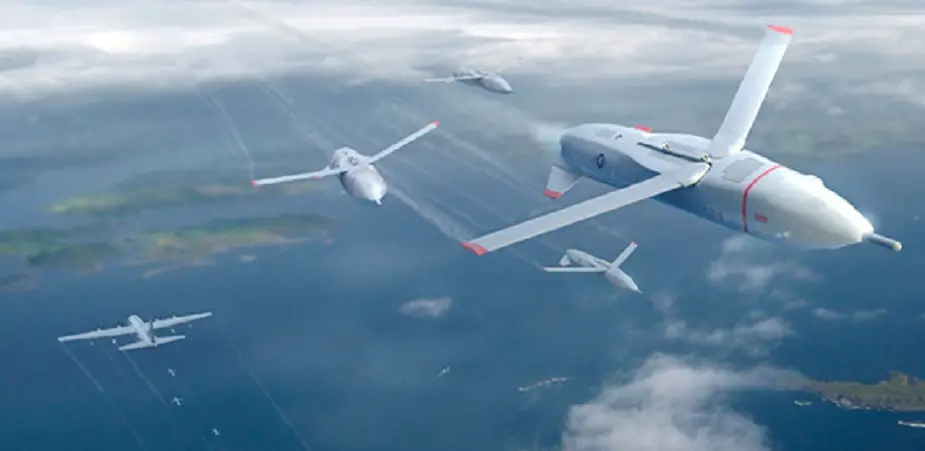Breaking news
UK invests in drone swarm technology.
The Defence and Security Accelerator (DASA) has awarded £2.5m to a consortium led by Blue Bear Systems Research Ltd to develop drone swarm technology.
 UAS are currently in widespread use around the world, but the ability to employ a swarm of these systems to operate collaboratively to achieve a common goal will be of great benefit to Defence (Picture source: DARPA)
UAS are currently in widespread use around the world, but the ability to employ a swarm of these systems to operate collaboratively to achieve a common goal will be of great benefit to Defence (Picture source: DARPA)
The ‘Many Drones Make Light Work’ project is the largest single contract awarded by DASA to date. The funding will steer the project for around 20 unmanned aerial systems (UAS) into the final stage of development, which will ultimately be managed by the Defence Science and Technology Laboratory (Dstl).
UAS are currently in widespread use around the world, but the ability to employ a swarm of these systems to operate collaboratively to achieve a common goal will be of great benefit to Defence. A swarm could support lower operating costs, greater system efficiency as well as increased resilience in the following areas:
- Situational awareness
- Medical assistance
- Logistics resupply
- Explosive ordinance detection and disposal
- Confusion and deception
Defence Minister Stuart Andrew said: “The MOD continues to invest in pioneering technology that enhances capability, reduces risk to personnel and enables us to better perform our tasks. Drone swarm technology can revolutionise how we conduct intelligence gathering, humanitarian aid, disposal of explosives and supply our troops on the battlefield.”
Head of DASA Lucy Mason said: “I am delighted that defence funding has enabled the creation of a collaboration from across industry sectors that will evaluate the latest thinking in swarming drone systems. We are committed to driving innovation through creating partnerships and collaboration, harnessing the best ideas and innovative thinking for UK defence and security.”
Blue Bear Systems Research Ltd, a world leader in autonomous system solutions, will act as the consortia lead and system integrator, with IQHQ, Plextex, Airbus and the University of Durham as part of the contracted team. Each organisation brings a crucial technology and skill set to the team in this 18-month ‘integration concept evaluation’ phase which will culminate in live flight demonstrations to the military.
Managing Director, Blue Bear Systems, Ian Williams-Wynn said: “The ability to deploy a swarm of low cost autonomous systems delivers a new paradigm for battlefield operations. During this project we will deploy next generation autonomy, machine learning, and AI to reduce the number of operators required, the time it takes to train them, and the cognitive burden on any operator during active operations. This allows very complex swarm-based missions to be performed simultaneously against single or multiple targets in a time sensitive and highly effective manner.”
Currently, operational systems require one or more operators to pilot the aircraft or to closely manage the flight mission. This is manpower intensive and consumes time and resource to train operators. The UK Armed Forces are actively seeking robotic solutions to provide a ‘Force-Multiplier’ effect whereby a greater military capability is delivered by fewer people and equipment. The swarm system is one possible solution to this multiple domain requirement as it will cover larger areas of battlespace more quickly at lower cost and reduced man hours. It also removes the operator from potentially harmful situations.
The future project phase will seek to establish a more ‘self-sufficient’ UAS swarm, providing the military with the ability to operate in increasingly complex and contested environments. Effective Human Machine Teaming will remain at the core of this research to ensure that the human remains firmly in control of the system.



















